
views
Finding Meaning in Your Life

Think about what is important to you. If you’re really jaded, it might seem like nothing is that important to you. But think back to the past -- what has been important to you? Consider some of the elements in your life that gave it meaning before, and whether any of those things might be able to bring you some joy and interest again.

Try to connect with others. Being jaded often means finding others boring and of little importance, particularly if they are jaded as well and facing the same experiences you are. However, it is still important to forge connections with people, no matter how bitter you’re feeling about the rest of your life. Think of something you do like, and then find someone else with a similar interest. Do you a have a friend who also loves Jurassic Park? Invite them over for a movie marathon. Have you been bitter that you haven’t had time to exercise? Ask a friend to meet you at the pool or track on Saturday afternoon for a workout. Meet new people whom you find interesting and fun. You can meet people anywhere that you enjoy going: talks, seminars, your gym, or maybe even your workplace. Look for people who would want to do activities with you or try something new.

Consider hobbies or activities that might interest you. If you’ve been jaded about life for a while, think about what made you happy in the past. Make a list of these things -- it could be games, reading, exercise, movies, painting, sports, or caring for something (i.e.; plants, pets). Think about how you might want to revisit these interests. Just because you’re jaded about one part of your life doesn’t mean that it has to bleed over into all of it.
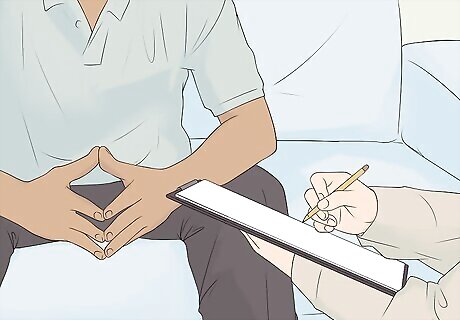
Seek counseling. If you feel like you cannot deal with your feelings of being jaded on your own, you might need professional counseling. Reach out to your health care provider to see if you have options covered by your insurance. Many people try a couple of different therapists before they find the one that works best for them. Schedule meetings with a couple of different doctors to see whom you like the best and want to work with.
Putting Yourself Out There
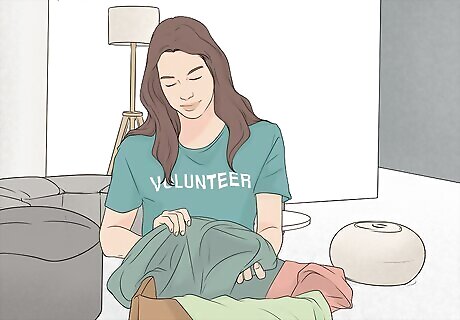
Force yourself into new situations. If you’re jaded about love or your job or living situation, sometimes being in a different environment can help. It helps distract you from your situation. Being jaded can often come from doing the same things over and over and having them turn out the same way. Overcome this by putting yourself into a new, one-time situation. Talk to someone you wouldn’t typically engage Volunteer at a soup kitchen Go to a sports event alone
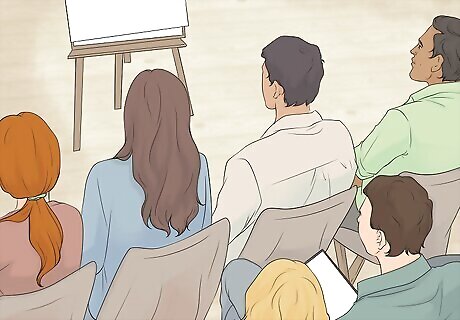
Get involved in new activities. Again, dealing with being jaded in one part of your life doesn’t mean that you can’t be happy with other parts of your life. That includes discovering new things. Sign up for classes, join a group, become a member of a museum -- do activities you’ve never done before, even if you’re not sure you’re going to like them. Distracting yourself from the parts of your life that aren’t going well can help a lot. Join an exercise class or group for a sport or activity you haven’t mastered Learn a new language by taking classes at the local community college Get involved in a political campaign for a candidate or issue that inspires you

Go outside and be active. Being outdoors, particularly in a beautiful setting, can help wake you up from the lethargy of being jaded. If you’re tired of the area around where you live, go elsewhere and be outside. Take a hike, eat a picnic in a park -- whatever helps you relax outdoors. Taking time to be in nature can be a good way to reconnect with the simple and important ways we are connected to the planet.
Analyzing Your Life

Consider your life. Think about why you became jaded in the first place -- unhappiness with a job, lack of friends, no time for activities -- and how you could change your situation. Even if you can’t change your situation much, sometimes it’s useful to figure out what are the elements in your life that are most responsible for making you jaded. Sometimes you can make small changes to the particularly egregious parts and it helps your outlook overall.

Be healthy. You can control how your body feels. Eating right (healthy fats, protein, whole grains, fruits, and vegetables) can make you feel better and more energetic. Getting a proper amount of exercise (even just a few hours a week spread out) will help you feel more energetic. Eating new foods and doing new exercises can also help prevent you from being depressed about everything in your life.
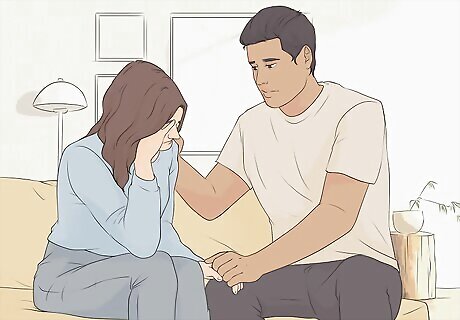
Find support. For some people, family and friends are enough support to help deal with being jaded about particular aspects of our lives. Others might have deeper feelings of depression and need to seek professional counseling. Whatever your situation, find people that you can talk to about how you’re feeling and prevent yourself from getting caught up in feelings of being jaded about everything.
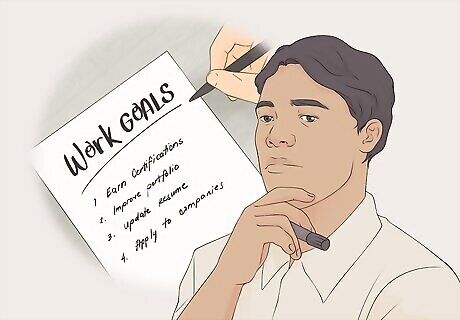
Make some changes. If things are not going well in any aspect of your life and you’re jaded about anything working out, focus on one element that you might be able to change. Will it be love, work, home? Being jaded doesn’t have to take over your entire life. If you’re jaded about every finding love, give online dating a try. If you’ve done it before, try other sites or a speed dating event. If your job is the root of feeling jaded, start looking for other work. If that’s difficult to find, ask if your work will support you getting new training or certifications, allowing you to do different activities that will be counted as work. If your housing situation has you down, consider your possibilities. If you’re still living with your parents, for example, and renting an apartment by yourself is too expensive, think about splitting with roommates or renting a room in someone’s house.
Changing Negative Thinking

Increase self-esteem. Part of letting go of your jaded thoughts is increasing your self-esteem. This might sound easier than it is, but there are concrete steps you can take to noticeably increase your self-esteem. When you find yourself with a negative thought, first identify the situation (such as tension with a coworker) and note how you think about the situation. What do you tell yourself about the situation? Then, challenge this thinking: whether you are jumping to negative conclusions, focusing only on the negative aspects, or undervaluing your own worth, think about the other possibilities. What have you done well? What are your positive qualities? Forgive yourself for your mistakes. You are only human, and you deserve forgiveness. Remind yourself that mistakes happen to everyone, and they do not make you a terrible person or define your life. Focus on positive things about yourself. Write down a list of all the things you like about yourself. Give yourself a compliment whenever you feel yourself getting discouraged.

Make sure you have an internal locus of control. If you have an internal locus of control, it means that you believe that you have the power to change events through your own actions. If you have an external locus of control, you believe that you have no power over your life, and everything that happens to you is the result of outside forces, not your own actions. Here are some tips for fostering an internal locus of control: Set goals for yourself. Divide larger goals (such as getting in shape) into smaller goals (such as running a mile without stopping, doing 20 consecutive squats, or taking a spin class) so that you can see how far you've come. Know that you always have choices in your life. Whether it's what you eat for breakfast or whether or not you go to law school, know that your own personal choices always affect your life and the events in it. Whenever you find yourself feeling helpless, remind yourself that your choices are important for your life.

Be assertive. Break the pattern of thinking that allows you to believe that you have no control over your life. Being more assertive in your actions will allow you to take more control of your life and make decisions that are best for you. Here are some tips on being assertive: Think about what you want to say before you say it. Whether you want your spouse to take on more household responsibilities or are trying to ask for a promotion from your boss, sometimes it is best to think about and rehearse what you're going to say before you say it. Say "no" more. It's okay to say no when you're too busy at work to take on a new task or don't want to get coffee with an unpleasant coworker. Take more control of your life and your time by exercising your ability to decline invitations and responsibilities. However, make sure that you're being polite. Say what you think, feel, or want. Use statements that begin with "I" to increase the effectiveness of your assertiveness. Instead of saying, "That's not fair to me," try saying something along the lines of, "I feel that this new policy is unfair because..."
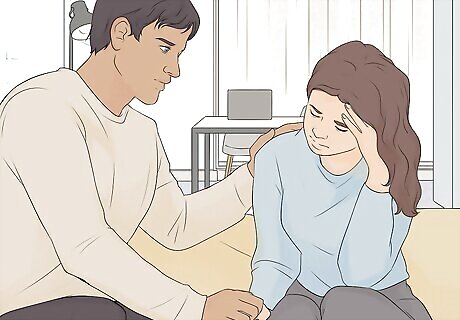
Take responsibility for your actions. Bitterness often occurs because you blame other people for your actions, rather than taking responsibility for yourself. Go back over the events in your life that have made you bitter and, instead of blaming someone else, think about your role in these events. Now, what can you do about this? Are there people in your life that you can forgive or apologize to? Is there a way that you can retroactively make amends or try the task again? Think actively, not passively. Try not to dwell on the past but rather think about what you can do in the present and future. Realize that taking responsibility involves learning about what you can learn from this situation. If you were in the same situation today, how would you act differently? What have you learned about communication and yourself? Think of accepting your responsibility as taking the first step towards improving yourself. Neither you nor the world is without mistakes and errors, so accepting this fact and learning from it is important to reducing your bitterness.
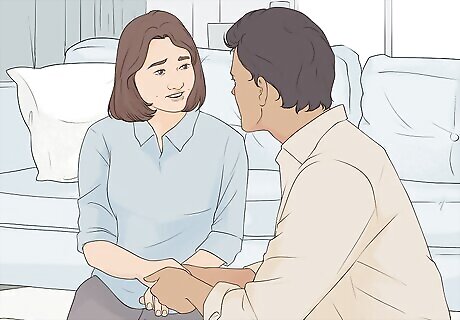
Forgive others for their mistakes. Bitterness often stems from blaming other people (either wrongfully or correctly) for some element of your misfortune. Think about what has caused your bitterness and whom you believe is responsible for it. Bitterness is different than regret because it involves other people. For example, if you are bitter because you feel like someone else got the praise you deserved at work, forgive your boss and your coworker. You do not have to explicitly say that you forgive them, but you could write in a journal about how and why you forgive them. If someone did wrong you, forgive that person explicitly. For example, if your spouse was unfaithful and you have been feeling bitter about it, try to release your bitterness and forgive your spouse. Tell them, no matter how long after the incident occurred, that you forgive them.

Stop thinking of yourself as a victim. Even if you were wronged by someone, in order to let go of your bitterness, you need to move away from thinking of yourself as someone who was wronged. Instead, you should start to think about the future and the more positive aspects of your life. Don’t allow that one particular situation to control your life, your thoughts, and your actions. What do you have to look forward to? What are you most excited about next? Be grateful. Think about the positive qualities that you've gained by overcoming adversity, as well as what you have to look forward to in life. Make a list of the things for which you're grateful in your life. Pay more attention to the positive things than the negative things. Change your narrative. Rather than thinking of yourself as a victim in your story, rewrite your past so that you are the hero who perseveres. Instead of thinking just about the bad event that happened to you, consider that you persevered in spite of these setbacks.
















Comments
0 comment